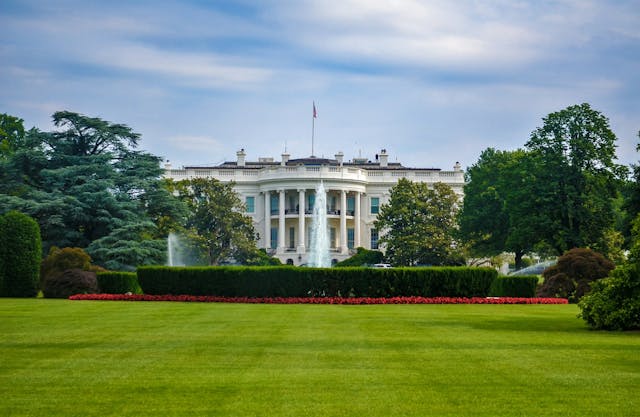13 Republican US Senators Face Re-Election in 2014

Every two years approximately one-third of the US Senate is up for re-election. The following 13 Republican US senators face re-election in 2014. Click here to read about the 20 Democratic US Senators who also face re-election in 2014.
1. Lamar Alexander (Tennessee)
Before election to the Senate in 2002, Alexander was governor of Tennessee, US Secretary of Education, and a two-time presidential candidate. Alexander resigned from his position as chairman of the Senate Republican Conference in 2012, the number three position in the GOP Senate leadership.
2. Saxby Chambliss (Georgia)
Chambliss' two Senate victories have been highly publicized. In 2002, he won a controversial race against Vietnam War veteran Max Cleland and in 2008 Chambliss had to win a run-off election.
3. Thad Cochran (Mississippi)After three terms in the US House of Representatives, Cochran won his first US Senate race in 1978. During his tenure, Cochran has procured many earmarks for Mississippi, becoming one of the "Kings of Pork."
4. Susan Collins (Maine)
One of the Senate's last remaining self-identified Republican moderates, Collins is nearing the end of her third term. Collins often breaks with her party as she did in 2009 to vote for President Obama's stimulus package.
5. John Cornyn (Texas)
Cornyn was first elected to the US Senate in 2002. He currently serves as the chairman of the National Republican Senatorial Committee, an influential organization which fundraises for GOP Senate candidates.
6. Mike Enzi (Wyoming)
Enzi was first elected to the US Senate in 1996. Although not as well-known as the other names on the law, Enzi was a significant contributor to the Sarbes-Oxley Act which strengthened the regulatory oversight of publicly traded companies.
7. Lindsey Graham (South Carolina)
Elected to the US House of Representatives in the Republican wave of 1994, Graham won his Senate seat in 2002. Well-known for his strong support of interventionist foreign policies, Graham has also prominently broken with many in his party on immigration and climate change.
8. James Inhofe (Oklahoma)
First elected to the US Senate in 1994, Inhofe is regularly recognized as one of the more conservative members in the GOP caucus. As opposed to Graham, Inhofe is vocal in his rejection of man-made global warming and climate change.
9. Mike Johanns (Nebraska)
A former governor of Nebraska and US Secretary of Agriculture, Johanns won his first Senate term in 2008. Johanns has a stated goal of repealing the Affordable Care Act, but his own proposal to repeal the tax reporting rule of the law failed in 2010.
10. Mitch McConnell (Kentucky)
First elected to the US Senate in 1984, McConnell is the Republican Senate Leader and the longest-serving US Senator in Kentucky history. A prolific earmarker, McConnell will be running for his sixth term in 2014.
11. Jim Risch (Idaho)
A former governor of Idaho, Risch was elected to the US Senate in 2008, succeeding the disgraced Larry Craig. In 2011, Risch was criticized for being one of the five possible senators who, through an anonymous hold, killed the Whistleblower Enhancement Act, which would have granted greater protection to federal employees who reveal abuses committed by the federal government.
12. Pat Roberts (Kansas)
After serving several terms in the US House of Representatives, Roberts won a Senate seat in 1996. As a member of the Senate Intelligence Committee during the George W. Bush administration, Roberts worked to stop the flow of sensitive intelligence information to the press. He has also been widely criticized for "fixing" the intelligence that resulted in the 2003 US-led invasion of Iraq.
13. Jeff Sessions (Alabama)
First elected to the US Senate in 1996, Sessions regularly ranks as one of its more conservative members. During the lame duck session of 2010, Sessions was one of the leaders who helped defeat the Dream Act.



